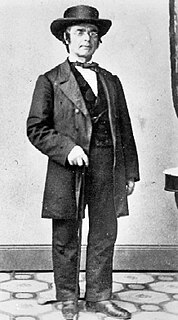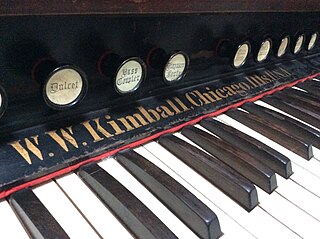This article needs additional citations for verification .(June 2016) (Learn how and when to remove this template message) |
Joseph J. Pramberger (1938–2003) was a piano engineer/designer and the founder of the Pramberger Piano Company.
This article needs additional citations for verification .(June 2016) (Learn how and when to remove this template message) |
Joseph J. Pramberger (1938–2003) was a piano engineer/designer and the founder of the Pramberger Piano Company.
The Pramberger family's history of piano craftsmanship dates back to the late 18th century in the Black Forest of Germany. Johann Joseph Pramberger, born in 1779, began making pianos in Vienna, Austria. Joseph Pramberger's father, Anton, began his apprenticeship at an early age handcrafting fine works of art, becoming a Master Artisan in the tradition of Old World European craftsman. The Pramberger family decided to leave war-torn Europe for the United States at the urging of family members who had been working at Steinway & Sons since 1913, in Astoria, New York. Anton had been promised work at the piano factory. There, he put his skills to work, dedicating 25 years as a Pattern Maker and designing and creating the equipment required to build fine pianos.
When Anton came to the United States in 1950, he brought his son, Joseph Pramberger, who would become the modern-day link in the Pramberger lineage of piano makers. Starting in 1958, he honed his craft at Steinway & Sons, where he spent 29 years perfecting his skills, first as an apprentice, then as a Design and Project Engineer, then as Vice President of Manufacturing.
Joseph further expanded his skills as a mechanical engineer at New York University in 1966, by studying, refining and documenting established piano making operations. He traveled the world visiting and consulting with suppliers and major piano manufactures in the U.S., Europe, Japan and Korea.
In 1987, he formed his own company, Pramberger Piano Ltd., where he and his father Anton worked together in the restoration and rebuilding of pianos.
Joseph joined Young Chang in 1995 where he made dramatic innovations in sound and action design to help improve the quality of their affordable grand pianos. That led the company to produce a new line called the Pramberger Series. Mr. Pramberger saw the culmination of his work in 2000 with the launch of his own piano line, the Pramberger Platinum Piano, which would continue to be produced for the next three years. The Pramberger Platinum series was the highest quality performance piano Young Chang had produced to that point. The action, manufactured with Renner parts, rivaled even the best German brands in that respect.
Mr. Pramberger died of cancer on December 15, 2003. After his death, his estate ended the contract with Young Chang. The result was the sale of the Pramberger name to the Samick corporation, which continues to produce pianos of the brand JP Pramberger. The current trim levels of JP Pramberger are "Platinum", "Signature", and "Legacy", from highest quality to consumer-grade. However, Young Chang kept the patents issued to Mr. Pramberger, and continues to use his innovations in their pianos to this day. Samick is, by law, not allowed to utilize Mr. Pramberger's designs because they are the corporate property of Young Chang. Most piano technicians and dealers consider the Korean-made Young Chang Prambergers of slightly higher quality than the Indonesian-made Samick Prambergers of today, especially in regard to the action.
According to Larry Fine, author of "The Piano Book", Samick's current JP Pramberger Platinum series is of comparable quality to the Kawai-produced Boston line designed by the Steinway corporation. [1]

The piano is an acoustic, stringed musical instrument invented in Italy by Bartolomeo Cristofori around the year 1700, in which the strings are struck by hammers. It is played using a keyboard, which is a row of keys that the performer presses down or strikes with the fingers and thumbs of both hands to cause the hammers to strike the strings.
Piano construction is by now a rather conservative area; most of the technological advances were made by about 1900, and indeed it is possible that some contemporary piano buyers might actually be suspicious of pianos that are made differently from the older kind. Yet piano manufacturers, especially the smaller ones, are still experimenting with ways to build better pianos.
Bösendorfer is an Austrian piano manufacturer and, since 2008, a wholly owned subsidiary of Yamaha. Bösendorfer is unusual in that it produces 97- and 92-key models in addition to instruments with standard 88-key keyboards, and in its use of 3 strings-per-hammer model of construction.

Heinrich Engelhard Steinweg, anglicized name Henry Engelhard Steinway, was a German-American piano maker who made pianos in both Germany and the United States. He was the founder of the piano company Steinway & Sons.

Kimball International consists of three furniture brands: Kimball, National, and Kimball Hospitality. It is the successor to W.W. Kimball and Company, the world's largest piano and organ manufacturer at certain times in the 19th and 20th centuries.
C. Bechstein Pianoforte AG is a German manufacturer of pianos, established in 1853 by Carl Bechstein.
Charles M. Stieff (1805–1862) was a 19th-century American industrialist and piano manufacturer, based in Baltimore, Maryland. Although his company went out of business in 1951, Stieff pianos are still highly regarded. They are often referred to as "The poor man's Steinway".

Wm. Knabe & Co. was a piano manufacturing company in Baltimore, Maryland from the middle of the nineteenth century through the beginning of the 20th century, and continued as a division of Aeolian-American at East Rochester, New York until 1982. It is currently a line of pianos manufactured by Samick Musical Instruments.
The Pearl River Piano Group (广州珠江钢琴集团有限公司) is China's largest piano manufacturer and has the largest piano factory in the world producing more pianos than any other factory. The company was established in 1956 in Guangzhou, Guangdong, China. Pearl River is capable of producing over 100,000 pianos a year, and exports them to more than 80 countries. Today Pearl River pianos are manufactured under a wide range of brands and levels. Each of these series have similar sizes with different scale designs, materials and different sound. The Hallet & Davis line produced by Pearl River is the oldest United States piano name still in production.

Sébastien Érard was a French instrument maker of German origin who specialised in the production of pianos and harps, developing the capacities of both instruments and pioneering the modern piano.

Sohmer & Co. was a piano manufacturing company founded in New York City in 1872. Sohmer & Co. marketed the first modern baby grand piano, and also manufactured pianos with aliquot stringing and bridge agraffes, as well as Cecilian "all-inside" player pianos and Welte-Mignon-Licensee reproducing pianos. Sohmer pianos were owned by U.S. President Calvin Coolidge, and composers Victor Herbert and Irving Berlin. Sohmer is now a line of pianos manufactured by Samick Music Corporation in Korea.

Wertheim is an Australian brand of pianos, formerly produced in Richmond, a suburb of Melbourne, Australia. Around 18,000 upright pianos were made in Melbourne between 1908 and 1935. They were designed for the south-eastern Australian climate and were a popular all-purpose piano.
Cunningham Piano Company began manufacturing acoustic upright and grand pianos in 1891. The founder, Patrick J. Cunningham, had recently emigrated from Ireland. He was a well trained craftsman and woodworker. Within their first decade of manufacturing, Cunningham Piano Company had gained recognition and had become one of Philadelphia's most respected makers of pianos. Alfred Dolge, the author, industrialist, and respected piano man commented on Cunningham Piano Company, among others, "...as true to the traditions of honest values in pianos as any the old Quaker City has ever produced."

D-274 is the model name of a concert grand piano, the flagship of the Steinway & Sons piano company, first built in 1884. It is generally described as the first choice of most concert pianists.
Christian Friedrich Theodor Steinweg, anglicized name C.F. Theodore Steinway, was a piano maker. He was the eldest son of the famous piano maker and piano company founder, Henry E. Steinway.

Grotrian-Steinweg, known as Grotrian in the US, is a German manufacturer of luxury pianos. The company is based in Braunschweig, Germany, commonly known as Brunswick in English. Grotrian-Steinweg makes premium grand pianos and upright pianos.

The Weber Piano Company was a piano manufacturing company based in New York City and East Rochester, New York from the middle of the 19th century through the beginning of the 20th century, and continued as a division of Aeolian-American at East Rochester, New York until 1985, when Aeolian went out of business. The Weber name was then sold to Korean piano company Young Chang, which in turn sold the Weber name to Samsung Group in 1987. Young Chang remains responsible for manufacturing the pianos, which are sold in two product lines: Weber, with entry-level and mid-level pianos, and Albert Weber, with higher-level products.